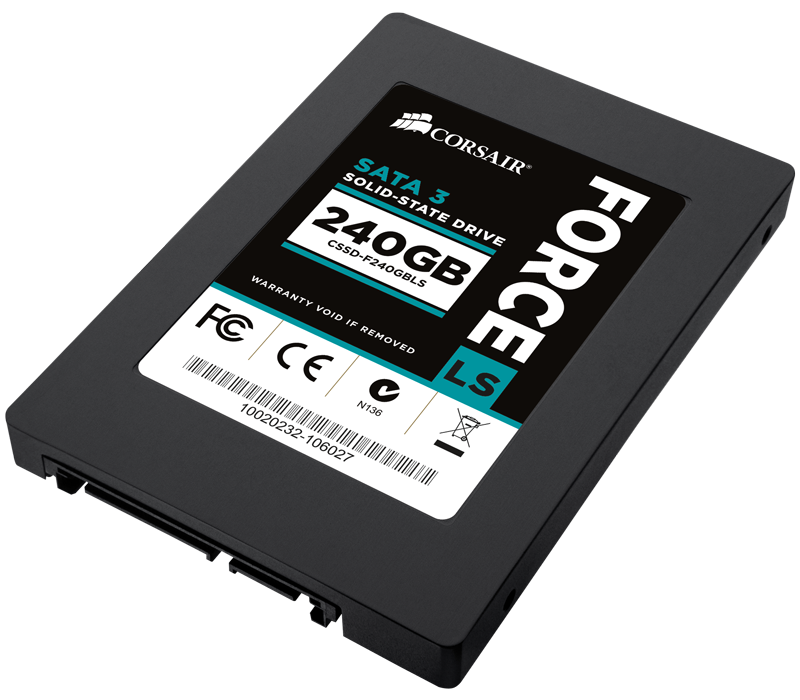In order to make sure the new computer performs well from the storage point of view I have decided to use Corsair Force LS SSD's. The Force LS's have a read performance of 560MB/s and write of 535MB/s.

I plan to use 2x 240GB drives in a RAID0 stripe this will increase the read to 1120MB/s and write to 1070MB/s. In order to do this there are some obstacles that have to be overcome. SSD's don's usually like RAID configurations. It is well documented that normal SSD's in a RAID array will degrade and TRIM no longer works which slows the drives down eventually.
The Corsair Force LS drives have a process running on them called BGC or Background Garbage Collector. This process allows them to work in a RAID array without the problems and also carries out the function that TRIM would have done if the operating system had been able to access the disk directly rather than through a RAID BIOS.
This RAID configuration will be for the OS Boot drive.
The data volume will consist of 2x 2Tb conventional spinning hard disks in a resilient / fault tolerant RAID1
array. Unfortunately this configuration of spinning disk isn't great for performance but there is a way to mitigate this.
On modern motherboards Intel have implemented a feature called Smart Response Technology. Thia allows you to use a small SDD or up to 60GB from a larger SSD to accelerate the access to spinning disks.
How it works
Intel® Smart Response Technology caches data I/O blocks to the SSD that benefit the most from acceleration—for example, your most frequently used applications, games, and OS data. This feature differentiates between multi-use or high-value data—such as application, user, and boot data—and low-value data, such as data accessed by background tasks. Low-value data does not typically offer any responsiveness benefits to you, and therefore is not inserted into the cache. This selectivity facilitates more efficient use of the available cache capacity, and maintains optimum steady-state performance even across system shutdown and reboots.
I have used this before with an old SSD and had problems. I believe this was down to the SSD being a first generation disk. Hence the chosen disk is a 60Gb Corsair Force LS drive. I'm hoping with the drive completely allocated to SRT and the drives BGC feature the problems experienced earlier will not repeat.